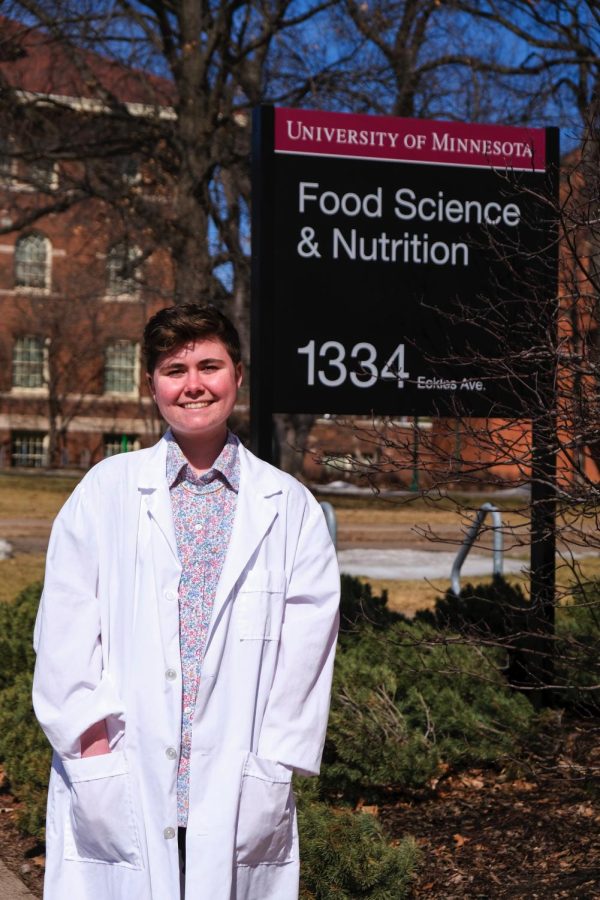The University of Minnesota Plant Protein Innovation Center (PPIC) opened applications Feb. 10 for intern positions to assist with ongoing research projects related to plant protein and sustainability. The intern positions are open to students of all academic majors.
Most students who work as interns in the center have a background in food science and are in the College of Food, Agriculture, and Natural Sciences (CFANS). But in recent years, students from the College of Science and Engineering (CSE) have also become undergraduate researchers in the lab, providing students with career experience outside of their academic college.
The PPIC was created in November 2018 as a collaborative research organization to bridge the gap between the food industry and academia in plant protein research. Many companies are seeking information on the nutritional and physiological characteristics of plants for food product development.
The program received more public attention within the past year and has formed new partnerships with General Mills and Cargill to accelerate funding of projects, according to center director Pam Ismail.
“I think it’s a great opportunity to interact with a big team on different academic levels,” Ismail said. “Food science can be applied to many other common fields of science.”

Fourth-year student Maddi Johnson is currently helping research the structure of plant proteins to determine if they can function as an ingredient in food products. Although Johnson is a bioproducts and biosystems engineering (BBE) major through CSE, she has been involved in the protein center since May 2021 to research sustainability.
“In engineering, it’s more generalizations and estimates, but I have been able to consider multiple factors and small details when seeing the food science side,” Johnson said.
Plant proteins are a key ingredient in plant-based meat replacements, which have increased in the market recently. These alternatives can mimic the flavors and textures of meat while being more sustainable and requiring less land to produce, Johnson said.
Companies like Impossible are looking to maximize the environmental benefits of meat replacements and find alternatives to common proteins while maintaining nutritional and functional aspects, Johnson said.
“Beef in particular is inefficient for energy, land and water use,” Johnson said. “Looking at plant proteins is relevant as our population grows and we need more land.”
Increasing food sustainability by using plant protein also attracted second-year BBE student Madison Stoltzman to the center.
“I was hesitant to apply because I wasn’t in CFANS and didn’t have a food science background,” Stoltzman said. “They offered me the position because of my interest in plant protein, which was most compelling to them.”
Stoltzman has assisted two masters students on two research projects studying pea proteins in beverages. In addition to researching sustainable food ingredients, this research also allowed Stoltzman to learn laboratory skills she hadn’t gained due to the COVID-19 pandemic, she said.
“This has allowed me to take in as much knowledge as possible and follow my natural curiosity to identify if research development is a possibility in the future for me,” Stoltzman said.
Students can also build up their networks outside of CSE and connect with other industry members to advance potential job positions, according to Johnson.
“My advice is to look for opportunities outside of your major because there is a lot going on at the University that is closely related to what you want to do,” Johnson said.


























